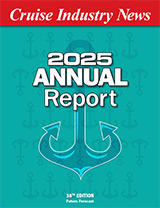Around 80 Tourism Ministers meeting at the UN World Travel Organization’s (UNWTO) Ministers’ Summit on Nov. 10 at World Travel Market, London called for global policies that are supportive of the travel and tourism industry. Ministers recalled that tourism is one of the world’s top job creators and can be a key driver of recovery and the transformation towards the Green Economy. As the global economy still struggles, governments were requested not to impose extra burdens on travel, such as fiscal measures, and to maintain stimulus policies in support of tourism as this in turn will contribute to sustainable economic growth.
In the context of the UNWTO Roadmap for Recovery, UNWTO Secretary-General ad interim Taleb Rifai stressed that “Travel and tourism stakeholders must work together in same way as world leaders, we have to move forward on the spirit of global cooperation”.
The Roadmap highlights tourism’s contribution to the ongoing global efforts to tackle the economic crisis and positions tourism as a primary vehicle for job creation, economic recovery and the transformation to the Green Economy
“Tourism needs to win positions on national and global agendas. Our industry can build effective and longstanding bridges between the public and private sector, be a reliable job creator and as a global industry contribute to both climate change response and poverty alleviation”, he added.
“Unfair” taxation jeopardizes tourism and economic recovery
Tourism Ministers stressed that actions are required which boost trade, simplify regulation, build infrastructure and rationalize taxes.
Against this background, the recently introduced UK Air Passengers Duty which from 1 November will increase exponentially the charges for tourists out of the UK, was debated.
“This is a discriminatory tax, not an environmental tax but a tax on development which fails to understand the importance of tourism to developing countries but also to the UK itself. This decision comes at the wrong time and sends the wrong signal, especially from a country that wants to contribute to global development”, said Mr. Rifai, echoing widespread concern by the attending ministers, delegations and private sector representatives.
The Roadmap – a blue print for the future
The Summit echoed the following ideas:
The economic and ecological challenges represent a joint task for the travel and tourism industry. These are closely interrelated with the poverty reduction agenda and the industry’s potential to act on all of them.
2009 has seen markets deteriorate and although the global business cycle is slowly picking up, caution has to be maintained regarding the near future, but preparing for the rebound.
Political support for stimulus measures which are helping tourism need to be continued even in the light of a slow recuperation in some markets.
The UNWTO Roadmap for Recovery is supported as a blue print for travel and tourism in the face of short and long-term challenges and will contribute to raise the stakes of tourism ministers within their own governments.
An agreement needs to be reached at the upcoming UN climate change summit in Copenhagen. Travel and tourism shares the global concern to mitigate and adapt quickly to the climate challenge.



